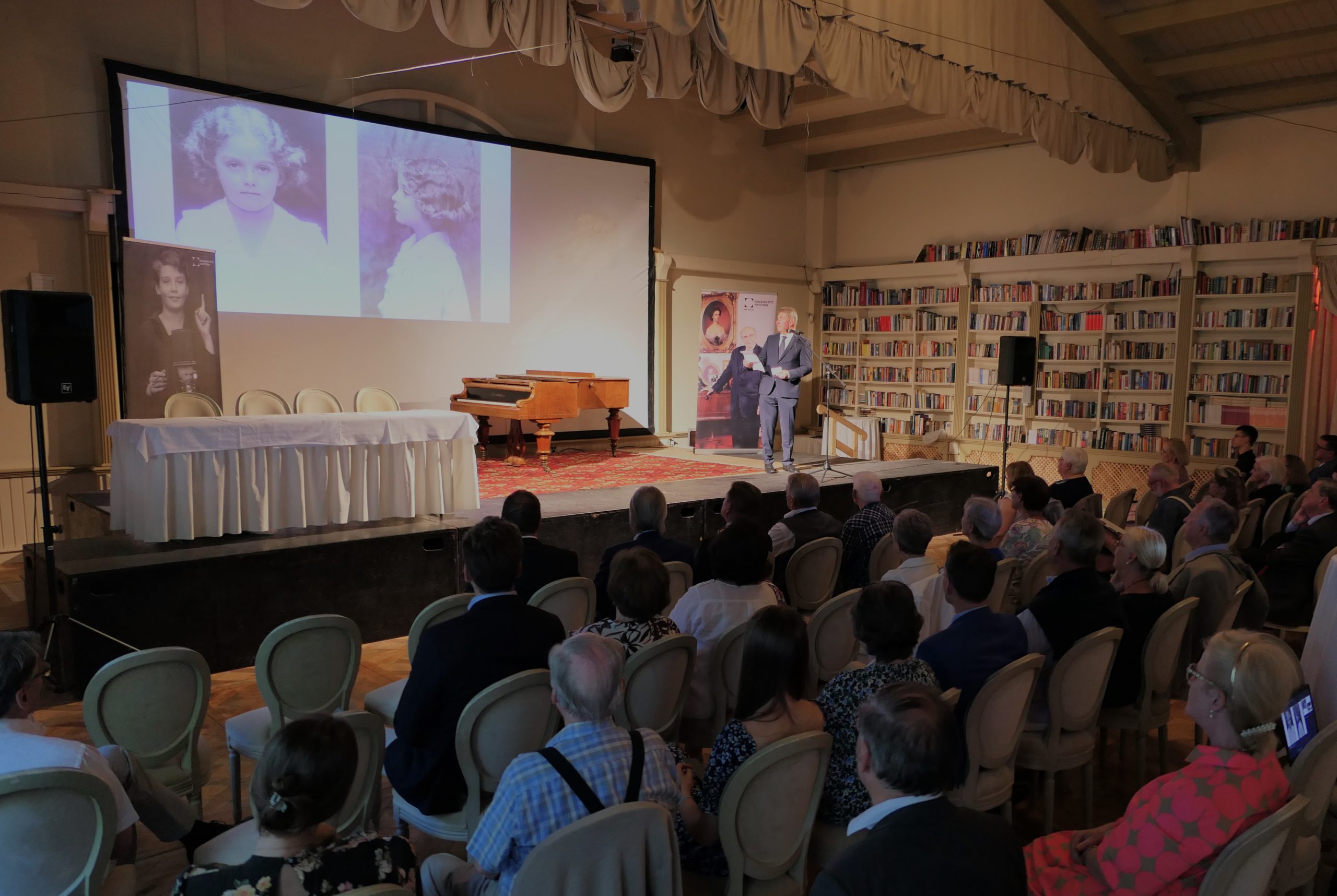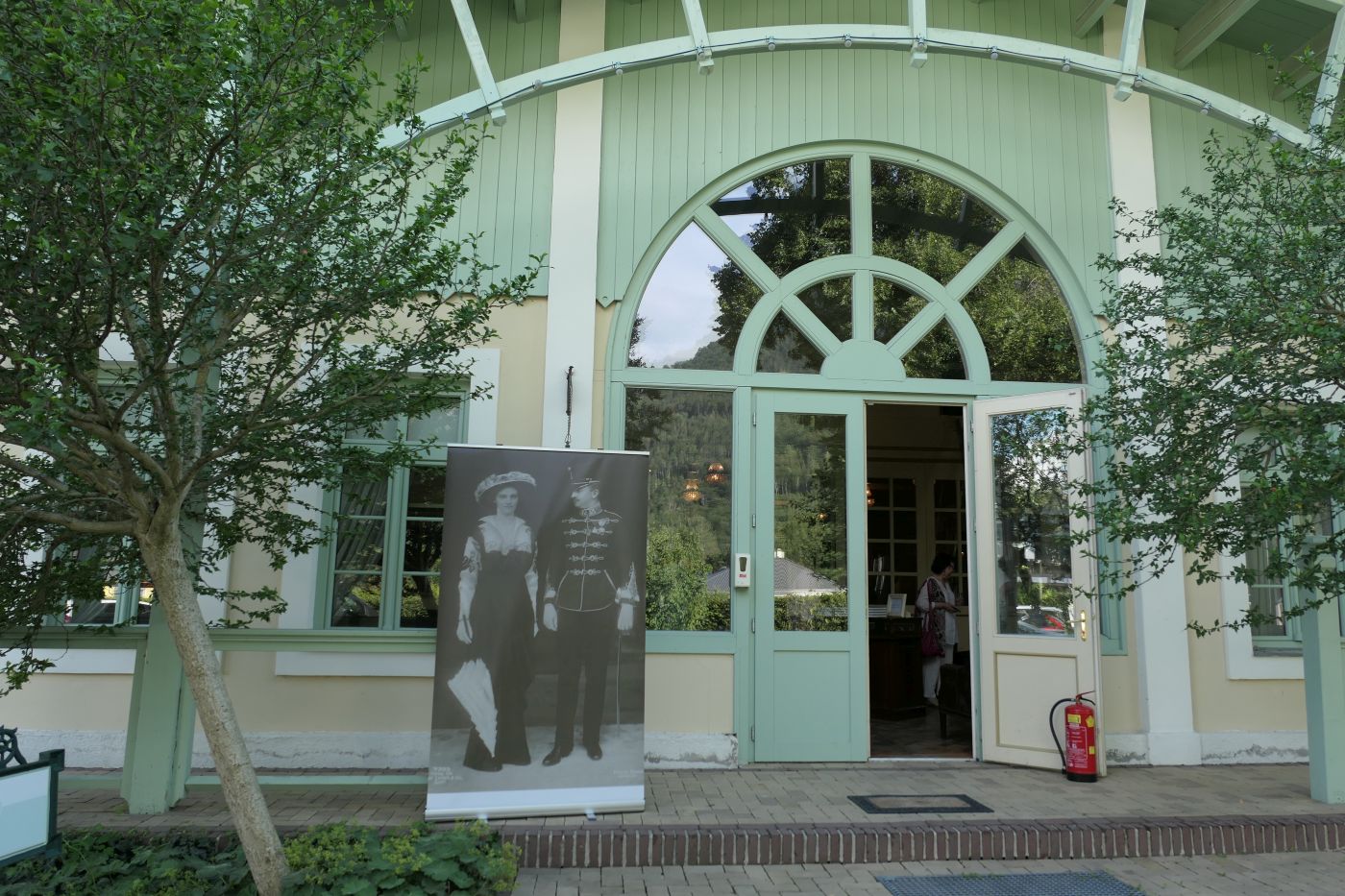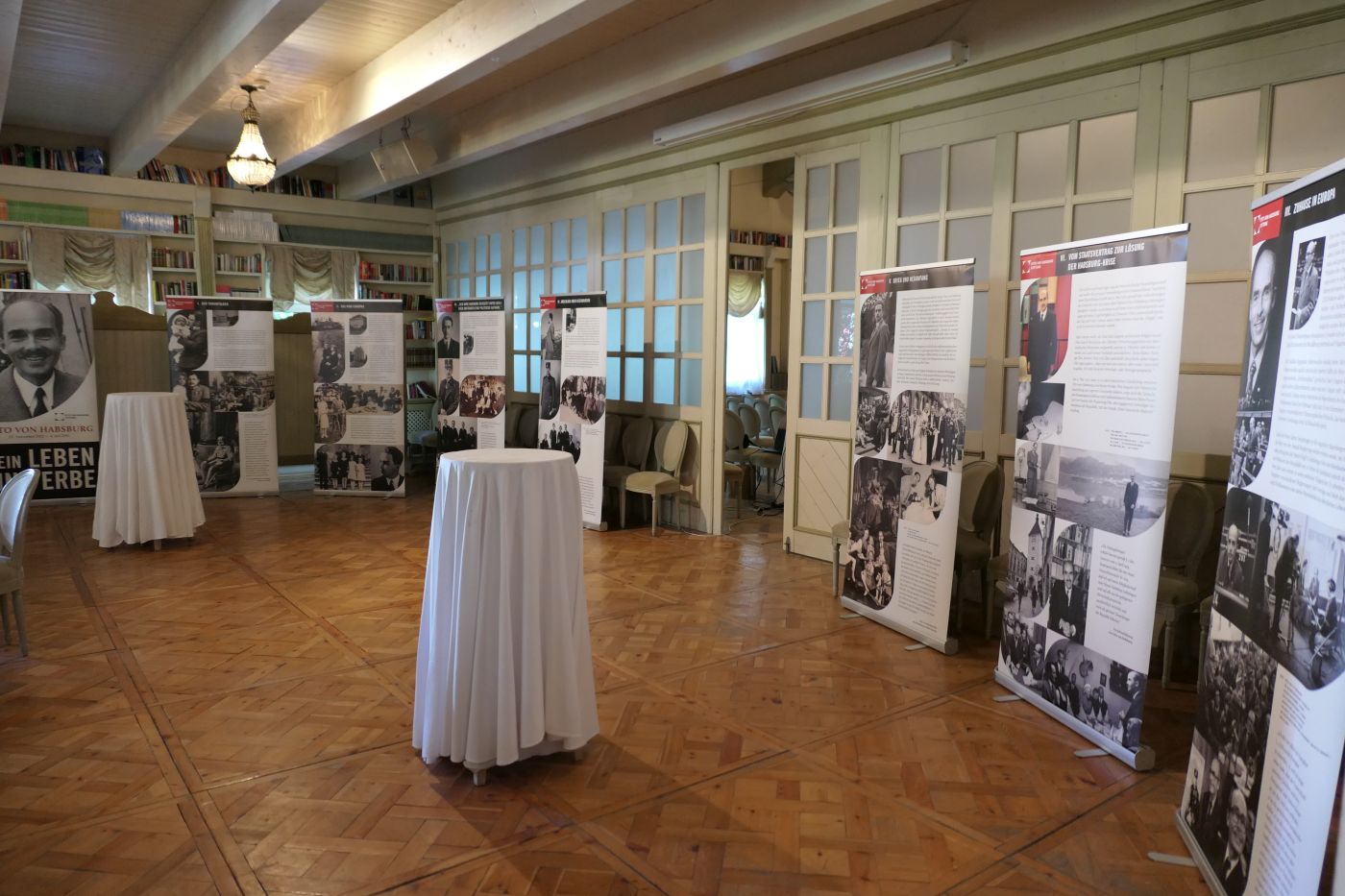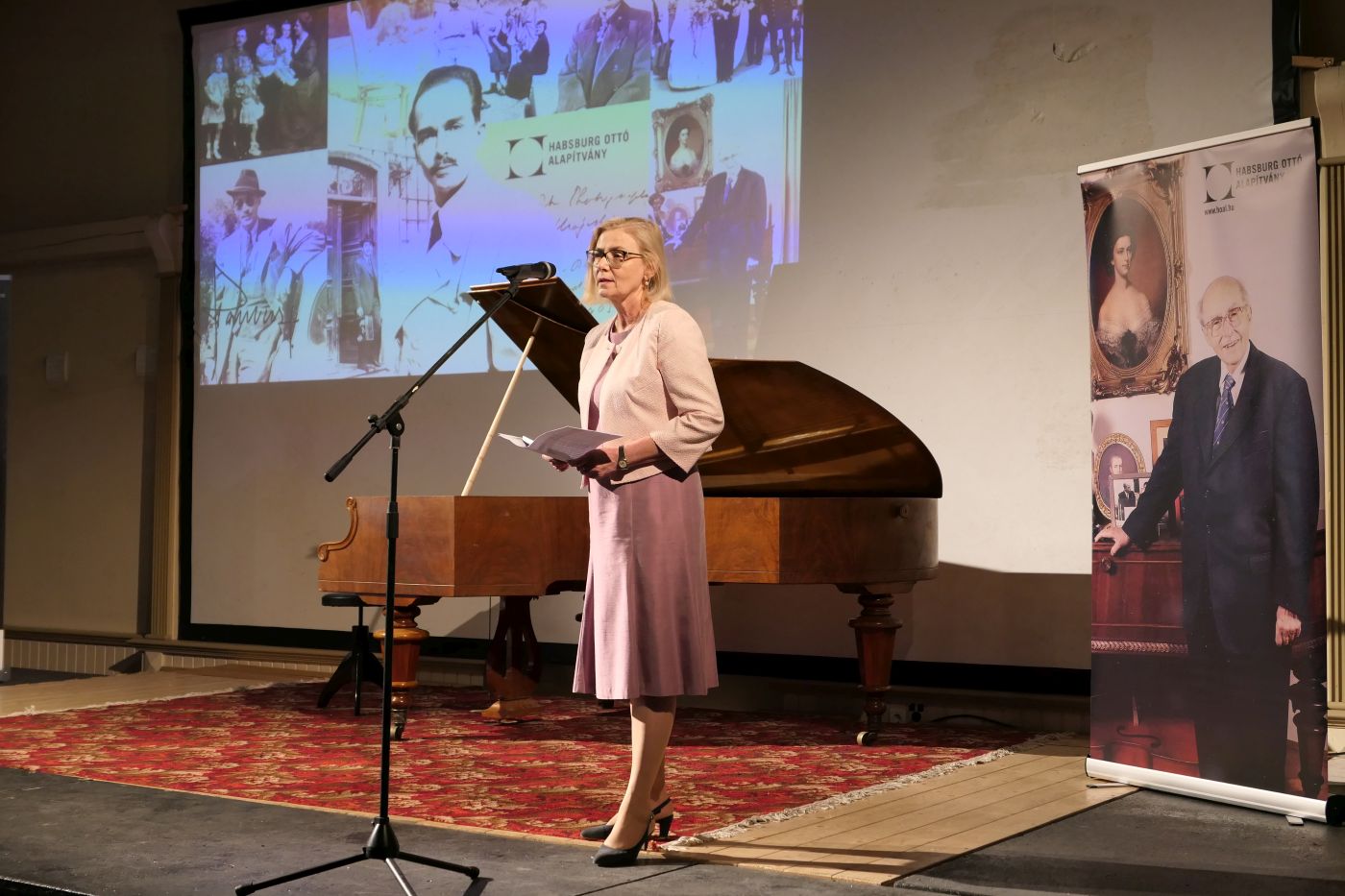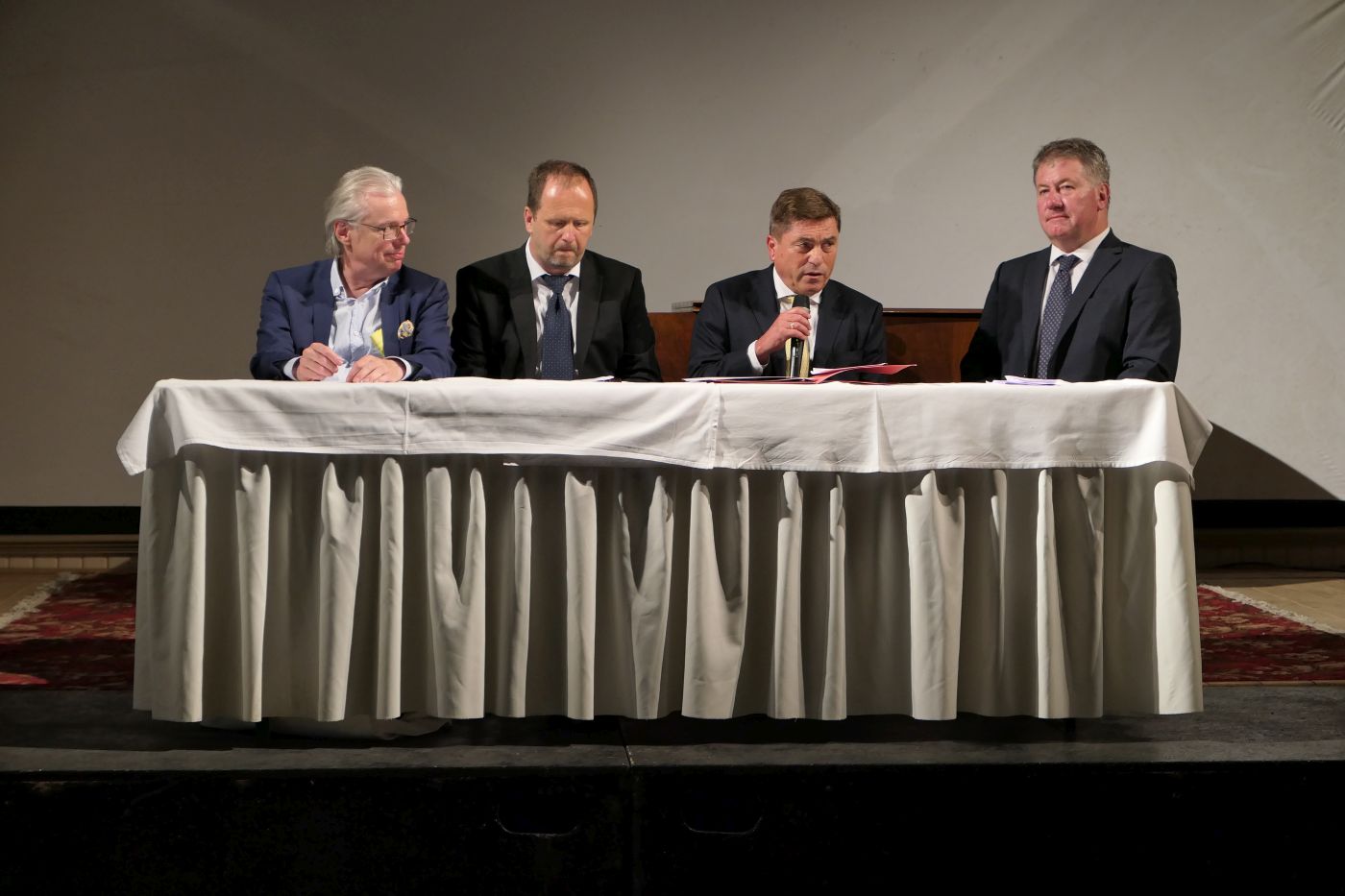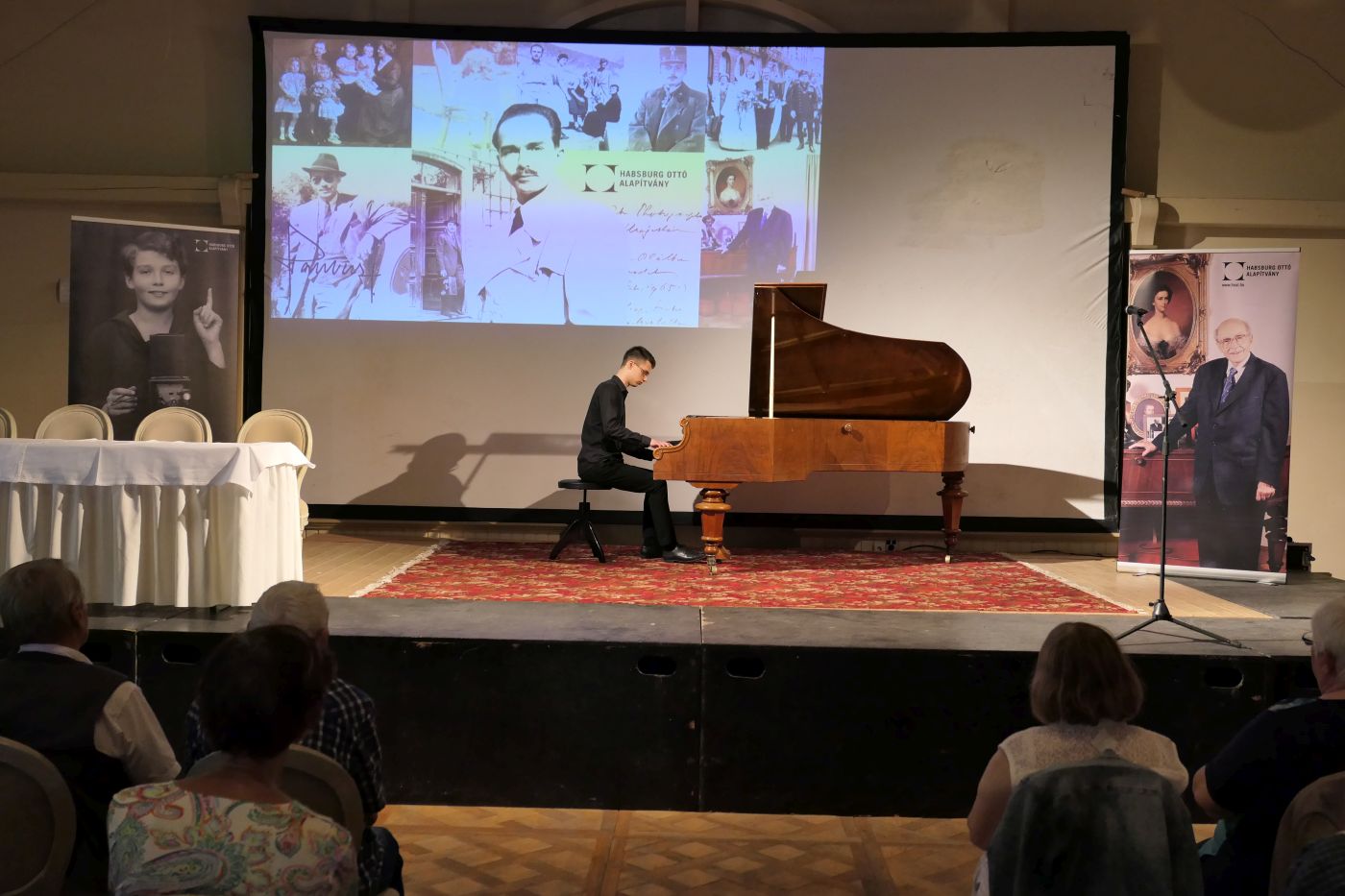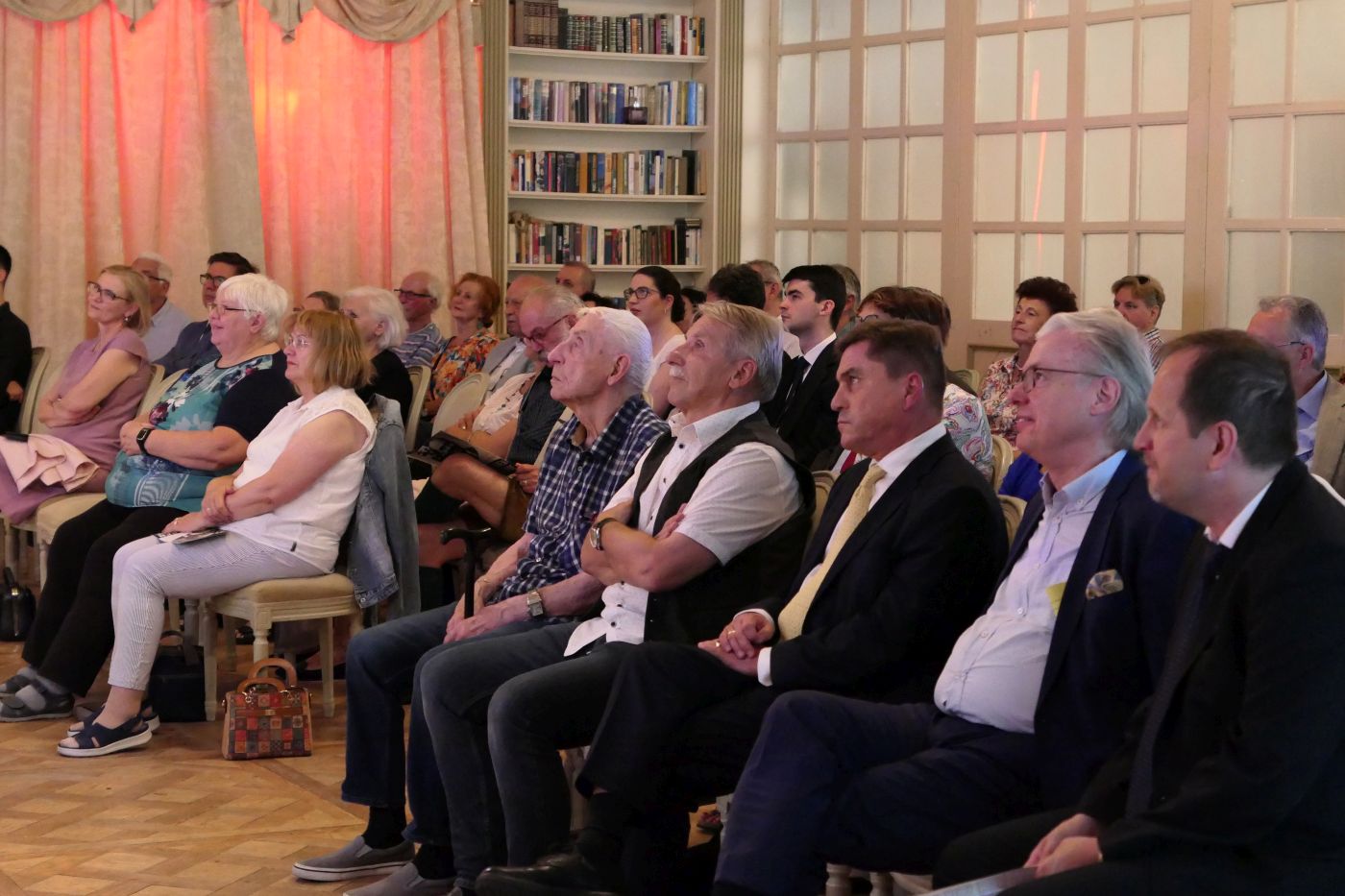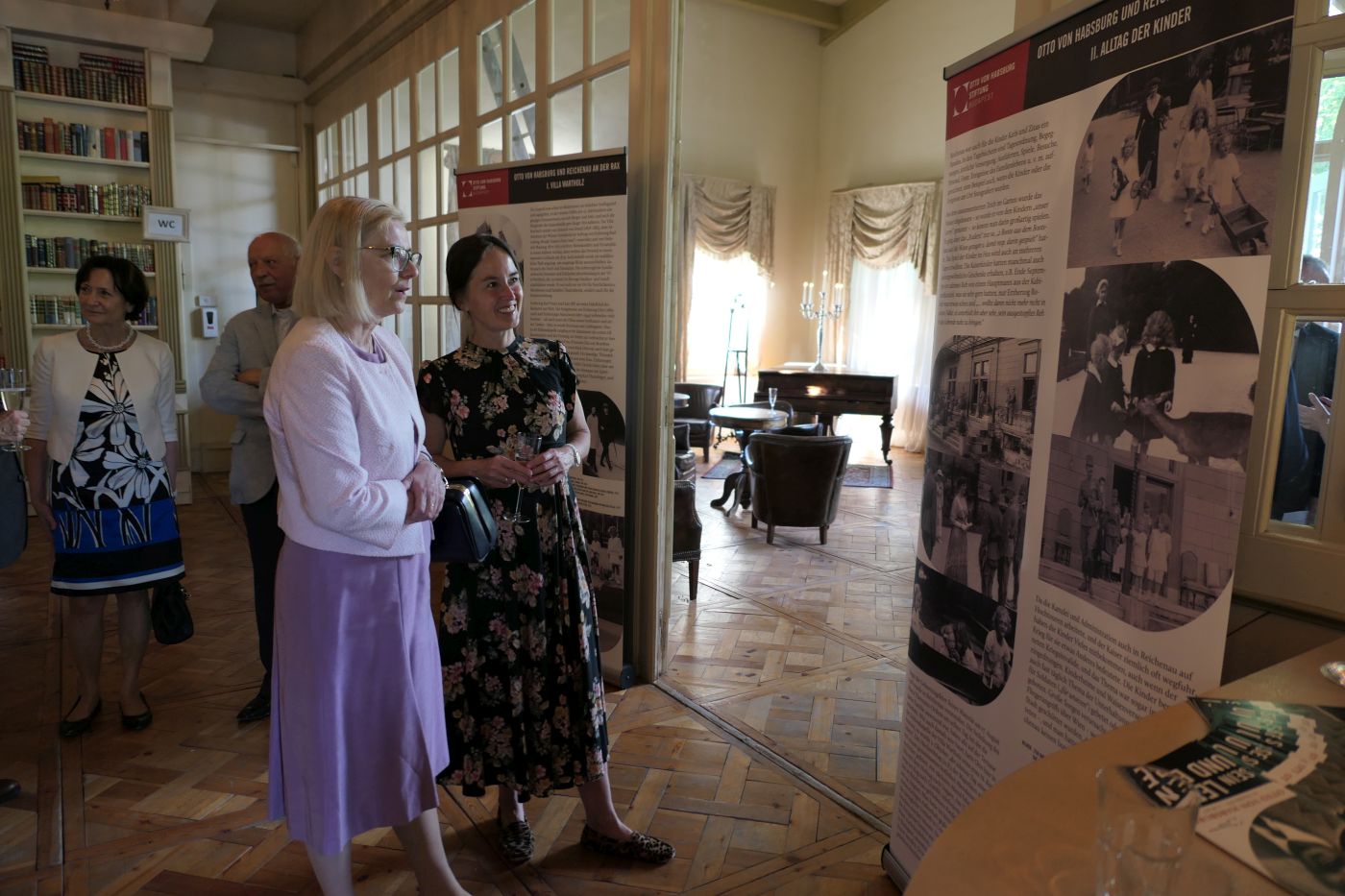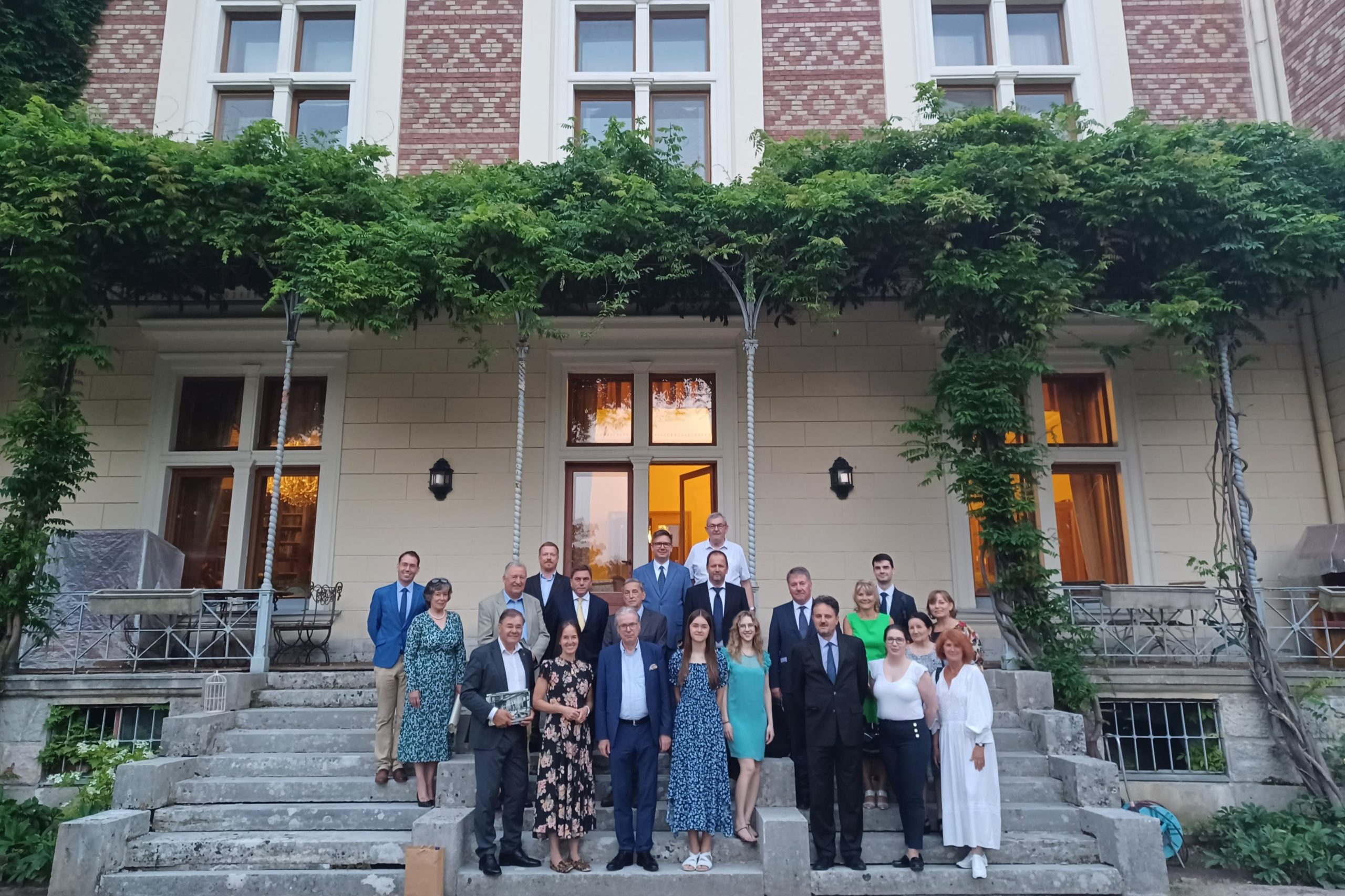110 years ago, on 28 June 1914, Archduke Charles and his family were in Reichenau when the news of the assassination attempt on Franz Ferdinand in Sarajevo reached them. Charles became heir to the throne and later emperor, and Reichenau became an influential centre of the empire. Villa Wartholz was soon renamed Castle Wartholz. The town in Lower Austria was a significant landmark in Otto’s childhood: he was baptised here, took his first communion and spent his first years in carefree peace. The title quotes his description of Reichenau as a six-year-old boy. Our Foundation’s travelling exhibition shed light on this period of his life, while Gergely Prőhle‘s presentation, which included a selection of photographs and documents, provided the audience with further details.
Referring to the milestone in the politician’s life 45 years ago, when he was directly elected to the European Parliament, Hungarian Ambassador to Austria Edit Szilágyiné Bátorfi recommended Otto’s task-oriented approach, which he maintained under all circumstances, to the attention of today’s public figures.
A round table discussion followed the diplomat’s speech. On the Austrian side, Helmut Wohnout, Director of the Austrian State Archives, described the defining milestones in the life of the last heir to the throne of the Monarchy from 1918 to 1979. The Hungarian participant, historian Róbert Fiziker, Chief Archivist of the National Archives of Hungary, explored the role of historical heritage and individual responsibility. He emphasised the decisive influence of Zita during the 1930s, who raised her son to rule, and Otto’s notion of a social people’s monarchy, which was considered at the time to be an antidote to the rampant totalitarianism and a lasting historical alternative for the peoples of the Danube Basin. Frank-Lothar Kroll, Professor at the Chemnitz University of Technology, recalled the post-World War I era of the decline of multi-ethnic empires and the rise of nation-states—from a German perspective.
The evening was concluded with Máté Dömötör‘s piano performance of Franz Schubert’s Sonata in A minor (D. 537).
